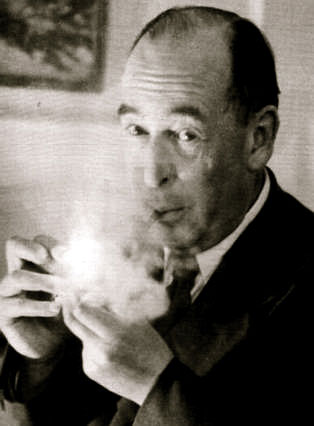
By late 1951, C. S. Lewis had written the majority of his most influential books: The Problem of Pain, The Screwtape Letters, The Great Divorce, The Abolition of Man, Miracles, his Space Trilogy, two of the seven Chronicles of Narnia (The Lion, the Witch, and the Wardrobe and Prince Caspian), and his WWII BBC broadcasts were about to be repackaged and published under the title of Mere Christianity.
Why refer to this litany of Lewis’s works? One would think that in someone recognized as a great writer of Christian apologetics and fiction, that there would be no area of his life where his beliefs were not as solid as the proverbial rock. There are layers of faith in each Christian’s life that draw us ever closer to God. I think He is always calling us to attain that next layer of depth in Him.
In late 1951, Lewis described to one of his regular correspondents how a new depth occurred in his life that year:
During the past year a great joy has befallen me. Difficult though it is, I shall try to explain this in words.
It is astonishing that sometimes we believe that we believe what, really, in our heart, we do not believe.
For a long time I believed that I believed in the forgiveness of sins. But suddenly (on St. Mark’s Day) this truth appeared in my mind in so clear a light that I perceived that never before (and that after many confessions and absolutions) had I believed it with my whole heart.
So great is the difference between mere affirmation by the intellect and that faith, fixed in the very marrow and as it were palpable, which the Apostle wrote was substance.
There’s no indication I know of that triggered this new depth of faith for Lewis, nor of what sins there had been in his life for which he had the need for the greater “light” on forgiveness. Yet that final paragraph contains a very significant truth for us all. There is a distinct difference between a faith that is “mere affirmation by the intellect” and a faith that gets into all of one’s being, “in the very marrow,” as almost a substance in itself.

Lewis is referring to a well-known verse in the eleventh chapter of the book of Hebrews, which states, “Now faith is the substance of the things hoped for, the evidence of things not seen.”
He reached a point where the intellectual understanding of forgiveness of sins was transformed into an understanding that reached into the very heart of his being.
That is the transformation we all need, not only in the matter of forgiveness, but in all areas of living the Christian life. We’re on a journey that never ends–a journey that draws us closer to the Lord daily in this life and that continues forever in the next.
